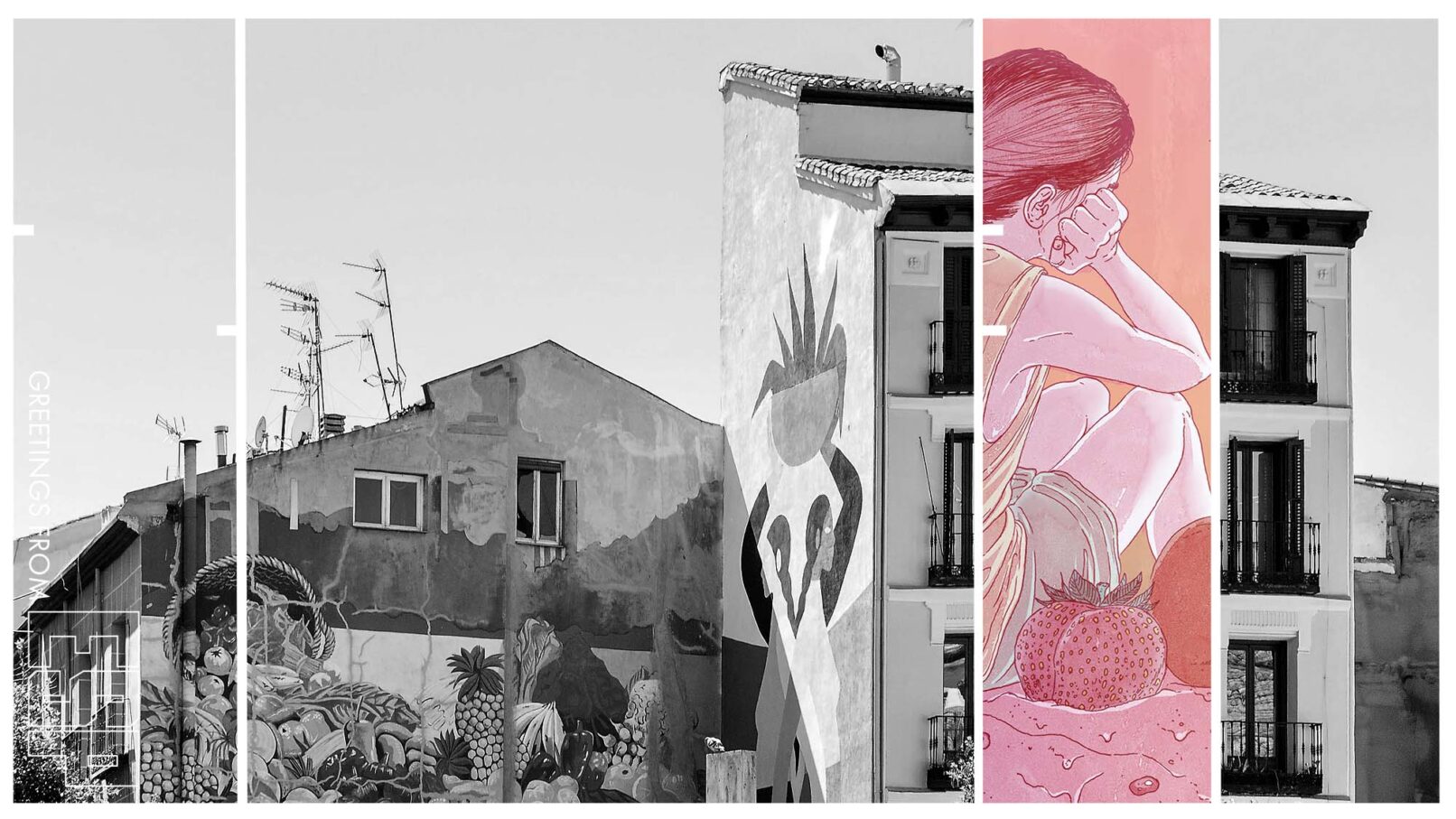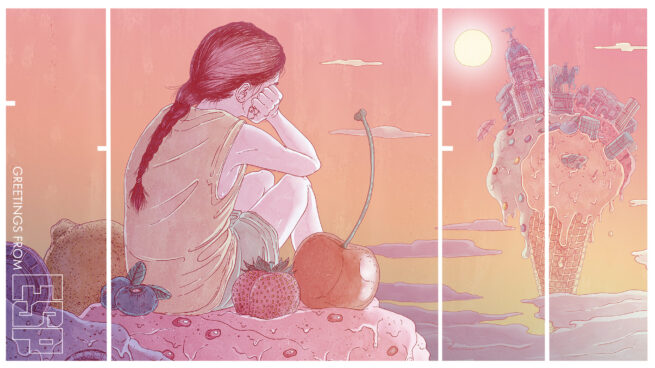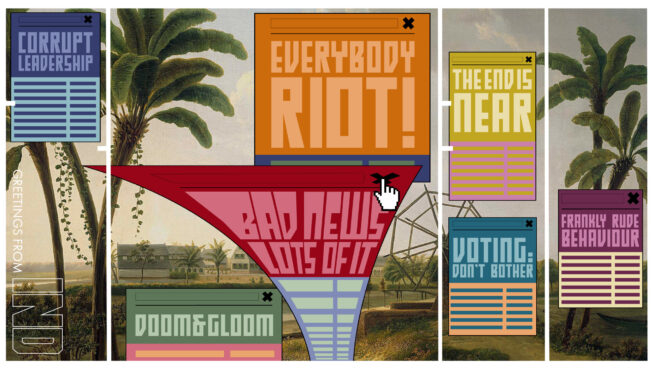María Bonete Escoto wrote such an evocative and devastating climate change story about a possible Madrid in 2031, that for us, we wanted to see what an expert thought of it. It was a story that most naturally lent itself to the ‘Ask an Expert’ format, where someone who’s spent a lot of time researching, writing or thinking about a topic gives an opinion on a piece of work – in this case, María’s story.
Alice Bell was a fantastic candidate – she is co-Director of the climate charity Possible, has a PhD in Science Communication and is the author of ‘Our Biggest Experiment: An Epic History of the Climate Crisis’, released in September this year.
We worked on communications related to climate technology when we produced the Top 10 Frontier Technologies for Climate Action a couple of years ago; and we worked on report design for Exponential Roadmap Initiative, which has the mission to halve emissions before 2030 through exponential climate action and solutions. So this is a subject we know a fair bit about. We’d love to help you with your social impact-related campaign – get in touch!



